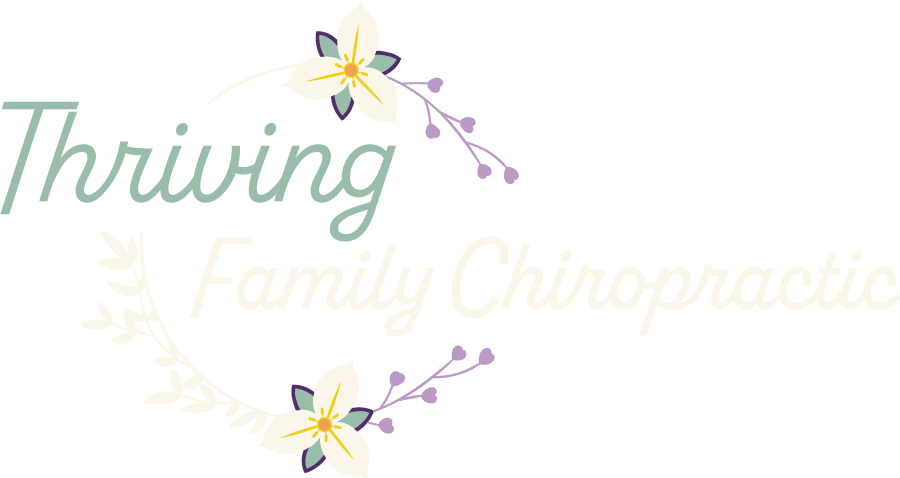Whole Body Health: Emotional Healthcare
Almost all of us need a reminder from time to time that there is more to life than running from task to task on autopilot.
In our modern society, we are regularly over committed and under engaged. Life can be hard and complicated, and we all try to balance our many commitments as best we can. Still, many of us end up feeling overwhelmed and like we’ve failed.
But you didn’t fail! That sense of overwhelm and inability to keep up isn’t a reflection of your inability to keep up. Rather, it’s because there is simply too much piled on our shoulders as should’s and must’s. Work, family, friends, household–it all becomes drudgery, a burden, and we can’t be our best for any of these hats we wear because life is so darn exhausting.
This stress can show up as symptoms in our body, mind, and heart. As a family chiropractor, I know that health means treating the whole self. Which includes delving into how stress in our lives can turn into pain we feel physically and emotionally.
Life is not meant to be pain. Yes there are definitely painful moments, but life is meant to be embraced, enjoyed, and animate our souls. What if we start committing to things that are a “heck yes” for us and let go of the things that aren’t?
Let’s look at a few categories where changing how we approach our lives can help change our emotional health, and in turn our overall health, for the better.
Work Doesn’t Have to Be Drudgery
Work can be fun. It’s true. I’m not trying to convince you that means you have to love every aspect of your work and be overjoyed to go to work every day. Instead, try integrating a mindfulness habit like active gratitude.
Aim to find something each day during your working hours that brings you joy or at least satisfaction. It can be as simple as the smile your co-worker gives you, or patting yourself on the back for finishing a project. Maybe it’s getting to listen to a favorite podcast or a fun playlist while you work.
If your job consists of the same repetitive tasks (an indicator of low job satisfaction) find a way to mix things up. Changing your physical stance, the rhythm you’re working at, or the pattern of tasks can help re-engaged your mind and ease repetitive stress on your body.
If you’re working at your dream job, that’s great! But if you’re not, that doesn’t have to mean you hate every workday. Only 20% of the US workforce is truly passionate about their job. Maybe the change is to view your job as a means to an end (a safe home, money to travel, etc.), and if you really can’t find anything to enjoy, take that as a sign to explore other options that are a better fit for your life.
A Functional Family and Homelife
Family can require a lot of our energy, and that’s okay. Just like we each do as people, families grow, change, and shift over time. That can mean things are more or less stressful during different life phases for everyone in the family. Try viewing your family through a lens that celebrates growth and change.
If you are partnered, make the choice to seek out reasons and reminders to still be in love with that person. It’s easy when we’re stressed or busy to fall out of the practice of showing our partners love actively. But you can always recommit and find new ways to grow intimacy, no matter how long you have been together. Try planning a monthly check-in, a regular date night, or just a habit of writing each other a sweet note a few times week to say thanks for being your teammate in life.
For the parents, I’m sure you don’t need me to tell you that our kids have so much going on these days! They are over scheduled which means we are way over scheduled. But what can you do? Start a family overhaul. I know that sounds like more work, but with a little extra effort initially, you can build the foundation of a family that meets everyone’s needs better.
Try out family meetings where everyone discusses with compassion what is working and what isn’t, and what everyone wants more of to be happier. If there are activities the kids are doing that they don’t enjoy, maybe let go of that commitment–boredom for kids is okay and healthy! Remember, everyone in the family needs to be heard and considered when coming up with a routine and schedule.
Planning more intentional family time can also have some surprising health benefits. For instance, did you know that eating family dinner together at least 4 nights a week is linked to lowered obesity, lower substance abuse, and higher rates of high school graduation for kids? Just communicating and being with loved ones lowers our blood pressure and cortisol levels.
Friends Bring More than Just Fun
Connection, purpose, sense of belonging, happiness–all are reasons that we need friends. However, in today’s society all of us seem to be spending less time connecting in person and more time on social media. It may not seem like a big deal, but a lack of in person connection with our people can actually lead to greater feelings of depression, anxiety, and feeling isolated.
It is so important to see close friends, to talk and engage in activities together. A phone call works too! The point is to let yourself prioritize that time together. Friends bring so much more to our lives than just laughter and fun (which are important too!). They help us feel safe, connected, and held within community. All of which are vital for emotional and psychological health.
Your House Isn’t Magazine Ready? That’s Okay!
An endless list exists to the smooth running of a household: cooking, cleaning, gardening and yard work, pet care, bill paying, general upkeep, etc. Did you know that for most households, there’s generally one person who is doing notably more housework than the rest of the family? How can we divide these tasks to be more equitable and, dare I say, enjoyable?
Start by considering that maybe some of the tasks are always going to be avoided. Rather than having to nag someone to do a chore no one likes, can those things be outsourced?
Avoid resentment by remembering that division of household labor is often invisible. If you live with others, be open and honest about your needs and the best way for everyone to participate. No one knows how you feel unless you say it.
For the chores that have to get done, consider ways to make them more enjoyable. Put on some music to listen to while doing the dishes, or try to make it a game to get your kids involved with cleaning their spaces or helping in the yard. Stumped on ways to make chores less chore-like? Try a variation on smiling meditation: smile at the pile of laundry while imagining your future self, thrilled to have clean clothes, smiling back at you. After all, smiling, even when we don’t totally feel like it, releases neurochemicals that can helps us feel happier, and help our body relax.
Above All: Let Yourself Feel All of It
You have permission to feel your feelings! Yes, even the ones that are stressful. As the triad of health teaches us, our bodies have lots of ways of communicating with us to let us know when something is or isn’t working. Feelings of stress, sadness, anger, etc. are just another way for our mind, body, and soul to give us a heads up that we need to take a deeper look at our habits and lives.
We are each in charge of how we feel, which is sort of freeing: no one can force us to feel anything. Isn’t that empowering? But we run into problems when we try to control our feelings and tamp them down. Those emotions will come up somehow: body aches, knee pain, persistent cough, blowing up, crying uncontrollably out of nowhere.
Let’s work to help everyone in our communities find better whole body health. We can start by acknowledging the human need to normalize expressing and sharing our feelings. This will allow us to more fully engage and be present in our lives.
I want for all of us to have a vibrant life full of wonder and awe. We can choose to live in this state of being all in and engaged in whatever it is we are experiencing or doing. You have my permission to feel and live your best life. Now get out there and do it!

